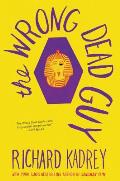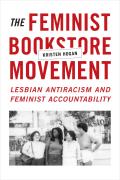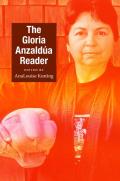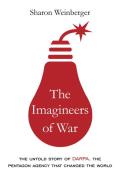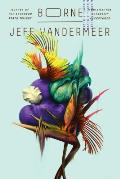INTRO: This week I want to veer off into some rarely mentioned resources. I figure you already read Salon, or Slate, or Vice, or Vox, or whatever your news spin of choice, and don’t need me pointing to articles about filibusters or chemical warfare.
We are immersed in information. All answers are only a Google search away. They may not be the right answers, but they are answers. And, the human brain is greatly satisfied in locating any answer, regardless of accuracy. Our acceptability threshold is low.
This means that well-meaning professionals working diligently to provide high-quality information are ignored. News organizations don’t call upon them, and their results don’t rise to the top of the search results page.
***
TAX-FUNDED RESEARCH YOU ARE NOT ALLOWED TO SEE: The Library of Congress runs a research service for members of Congress called (predictably enough) the Congressional Research Service. The CRS is not allowed by law to share its work with anyone other than the requesting member of Congress. The loophole here is that members of Congress can share the research reports with anyone they choose. The Federation of American Scientists regularly contacts members of Congress and asks for reports and posts them at Congressional Research Service [CRS] Reports.
Here’s a search tip. When you’re looking for a reasonably high-quality explanation of a current issue, search the keywords for the issue and add the term CRS. This helps bring Congressional Research Service reports to the top of the results list.
Example: A search for Chemical Weapons might bring up a Wikipedia page and a multitude of news sources, but a search for Chemical Weapons CRS should bring near the top of your results —
“Syria’s Chemical Weapons: Issues for Congress” (Sept. 30, 2013)
“Chemical Weapons: A Summary Report of Characteristics and Effects” (Sept. 13, 2013)
and
“Syria’s Chemical Weapons: Progress and Continuing Challenges” (Brief Report) (Oct. 1, 2014)
These are a little dated, but it indicates how long Congress has been struggling with this issue.
In January 2017 the CRS prepared a report titled “Armed Conflict in Syria: Overview and U.S. Response.”
It’s a treasure trove of information. Highly recommended.
***
40 TOUGH JOBS: The Political Appointee Project published their “40 Toughest Management Jobs in Government.” This is a good guide to the jobs Trump should be filling first.
The Political Appointee Project is a project of the National Academy of Public Administration.
“The Academy is an independent, non-profit, and non-partisan organization established to assist government leaders in building more effective, efficient, accountable, and transparent organizations. The Academy’s unique feature is its 800+ Fellows—including former cabinet officers, Members of Congress, governors, as well as prominent scholars, business executives, and public administrators. Our Fellows have a deep understanding of financial management, human resources, technology, and administrative functions at all levels of government, and direct most of Academy’s studies.”
Their work can be a little dry, and they’re as understaffed as anybody right now, but there’s a ton of great, practical advise here on running a government.
Compare this list with the Washington Post’s Appointee Tracker. The deputy positions are among the most challenging jobs in the federal government. Trump has not nominated a candidate for nearly every deputy position. This is willful sabotage.
***
NEOLOGICAL STUDIES: I don’t think neological is really a word, but it should be. Neology: The study of the new. (Oh, wait! It is a word, but with a different meaning: “the use of a new word or expression or of an established word in a new or different sense : the use of new expressions that are not sanctioned by conventional standard usage : the introduction of such expressions into a language.” Whatever. My definition is better.)
It’s a shame that our most forward-thinking government institution is DARPA (Defense Advanced Research Projects Agency). DARPA may be best known for giving us the internet (AP Style says you don’t have to capitalize it anymore), but its also been instrumental in human-computer interface research (moving prosthetics with your mind!, robot and drone technology, and onion routing.
There are very few organizations willing to think such far-out thoughts (experimental space planes, exoskeletons, and starships for interstellar travel). We’d be better off if the blueprint for our future was not in the hands of the military.
***
PATIENCE IS A VIRTUE: Weird spike in mortality statistics.
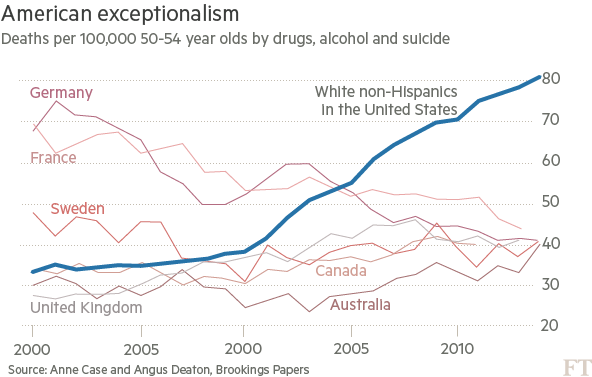
Rising morbidity and mortality in midlife among white non-Hispanic Americans in the 21st century
“This increase for whites was largely accounted for by increasing death rates from drug and alcohol poisonings, suicide, and chronic liver diseases and cirrhosis.”
Maybe Trump voters are the last gasp of a dying breed.
***
VOTING DATA: Interesting set of voting data to dig into if you’re into that sort of thing.
Creating a National Precinct Map
“This map tells many particularly interesting stories on which I’ll elaborate in future posts, but suffice to say that most of the precinct swing can be explained by one variable: education level, perhaps augmented somewhat by race and ethnicity.”
We have an epidemic of willful ignorance and gross miseducation.
***
WHAT HE SAID:
“It is easy to hate and it is difficult to love. This is how the whole scheme of things works. All good things are difficult to achieve; and bad things are very easy to get.”
~Confucius (551-479BC)
I have zero idea if this is a legit quote (or legit accurately translated quote), but I endorse the sentiment.
***
ON THIS DAY IN HISTORY:

(h/t Sean Bonner)
EDITORIAL: I think the 5 stages of grief template has been largely debunked, but I find myself in the we-are-eternally-fucked-and-wallowing-in-willful-ignorance-and-every-institution-is-failing-us-but-we-had-a-good-run-i’m-just-going-to-drink-this-bourbon-sit-on-the-beach-and-watch-the-sun-set-except-i-have-decades-before-i-can-retire-and-things-are-so-fucked-up-i’ll-probably-never-be-able-to-retire-I-should-just-say-fuck-it-but-I-don’t-want-to-be-poor-again-being-poor-sucks-so-I’m-going-to-keep-working-and-mourn-silently-but-I’m-still-drinking-this-bourbon stage. At least, I’m pretty sure that’s the stage I’m in.
If there are so many transgressions, and so many bad people, why are none of them ever punished? Good people work really hard and evil still flourishes. Things suck here and we have it GREAT. Subscribe to the Human Rights Watch weekly newsletter if you want a reminder of how much worse it could be.
So, I’ve been thinking lately about Neal Stephenson’s “Innovation Starvation.”
If you haven’t read it, it’s Stephenson’s lament that there are no more grand ideas in literature anymore. Specifically in science fiction. Let me concede immediately that there are huge problems with his essay, but, putting those issues aside, I’ve been thinking a lot about art as a template for new ways of understanding the world.
If the law won’t save us, and journalism won’t save us, and non-profits won’t save us, and protest won’t save us, it’s up to poets and comic book writers and science fiction writers and comedians. That’s where we’re going to get a new narrative for the future. (Really, it’s up to us all tapping into our human compassion and finding ways to let that drive flourish, but until then the poets and writers and singers of songs will have to carry the burden.)
And, right about the time I’m thinking this I come across this essay by Cory Doctorow about his new novel Walkaway where he writes:
“Stories of futures in which disaster strikes and we rise to the occasion are a vaccine against the virus of mistrust.”
And so, that’s where I’m turning my attention when I’m feeling bleak. Stories where humans rise to the occasion.
MORE POETRY!:
Excerpt from The People, Yes by Carl Sandburg.
The people yes
The people will live on.
The learning and blundering people will live on.
They will be tricked and sold and again sold
And go back to the nourishing earth for rootholds,
The people so peculiar in renewal and comeback,
You can’t laugh off their capacity to take it.
The mammoth rests between his cyclonic dramas.
The people so often sleepy, weary, enigmatic,
is a vast huddle with many units saying:
“I earn my living.
I make enough to get by
and it takes all my time.
If I had more time
I could do more for myself
and maybe for others.
I could read and study
and talk things over
and find out about things.
It takes time.
I wish I had the time.”
The people is a tragic and comic two-face: hero and hoodlum:
phantom and gorilla twisting to moan with a gargoyle mouth:
“They buy me and sell me…it’s a game…sometime I’ll
break loose…”
Once having marched
Over the margins of animal necessity,
Over the grim line of sheer subsistence
Then man came
To the deeper rituals of his bones,
To the lights lighter than any bones,
To the time for thinking things over,
To the dance, the song, the story,
Or the hours given over to dreaming,
Once having so marched.
Between the finite limitations of the five senses
and the endless yearnings of man for the beyond
the people hold to the humdrum bidding of work and food
while reaching out when it comes their way
for lights beyond the prison of the five senses,
for keepsakes lasting beyond any hunger or death.
This reaching is alive.
The panderers and liars have violated and smutted it.
Yet this reaching is alive yet
for lights and keepsakes.
The people know the salt of the sea
and the strength of the winds
lashing the corners of the earth.
The people take the earth
as a tomb of rest and a cradle of hope.
Who else speaks for the Family of Man?
They are in tune and step
with constellations of universal law.
The people is a polychrome,
a spectrum and a prism
held in a moving monolith,
a console organ of changing themes,
a clavilux of color poems
wherein the sea offers fog
and the fog moves off in rain
and the labrador sunset shortens
to a nocturne of clear stars
serene over the shot spray
of northern lights.
The steel mill sky is alive.
The fire breaks white and zigzag
shot on a gun-metal gloaming.
Man is a long time coming.
Man will yet win.
Brother may yet line up with brother:
This old anvil laughs at many broken hammers.
There are men who can’t be bought.
The fireborn are at home in fire.
The stars make no noise,
You can’t hinder the wind from blowing.
Time is a great teacher.
Who can live without hope?
In the darkness with a great bundle of grief
the people march.
In the night, and overhead a shovel of stars for keeps, the people
march:
“Where to? what next?”

